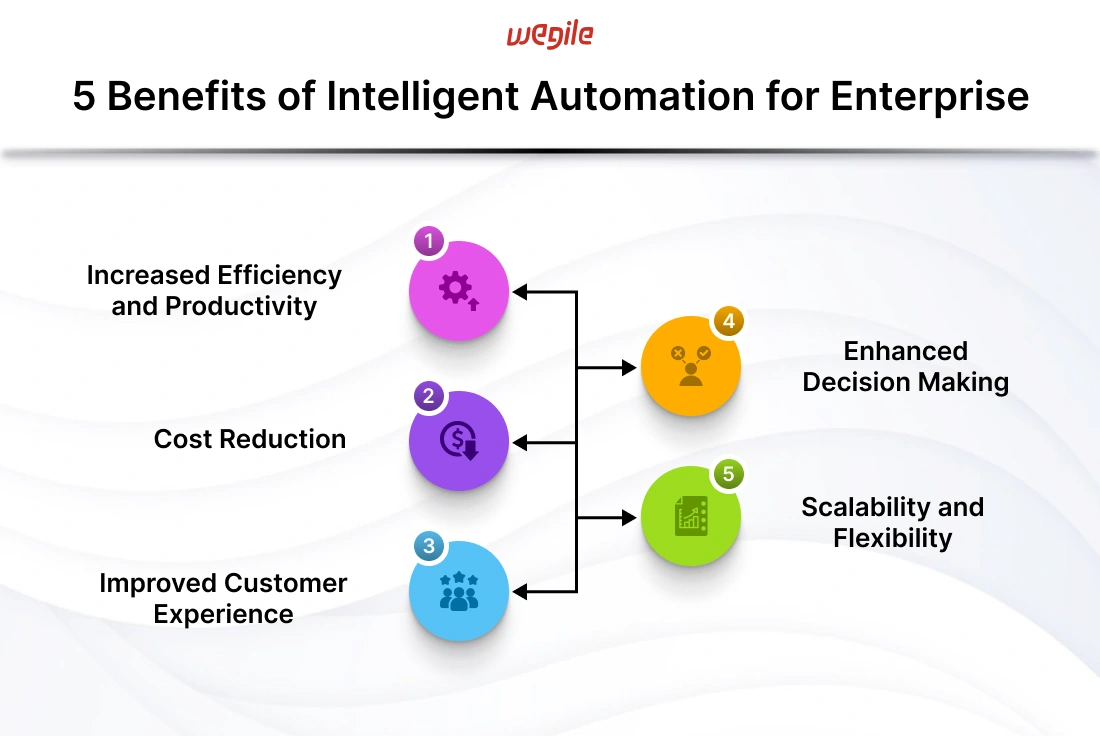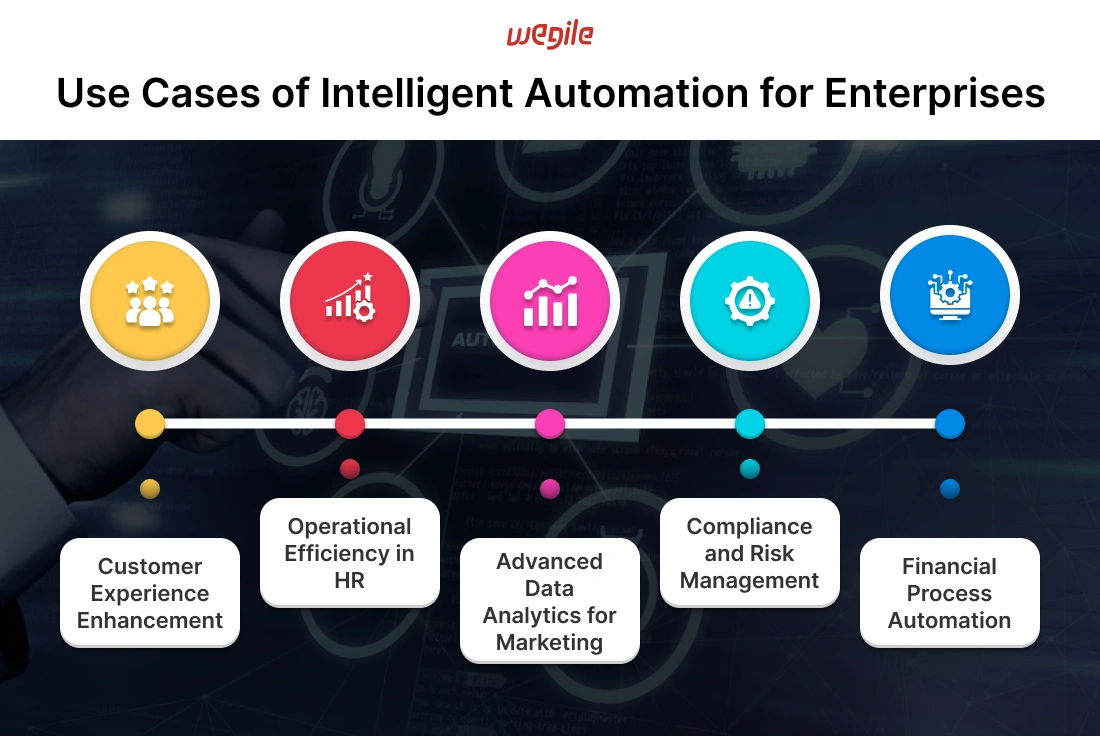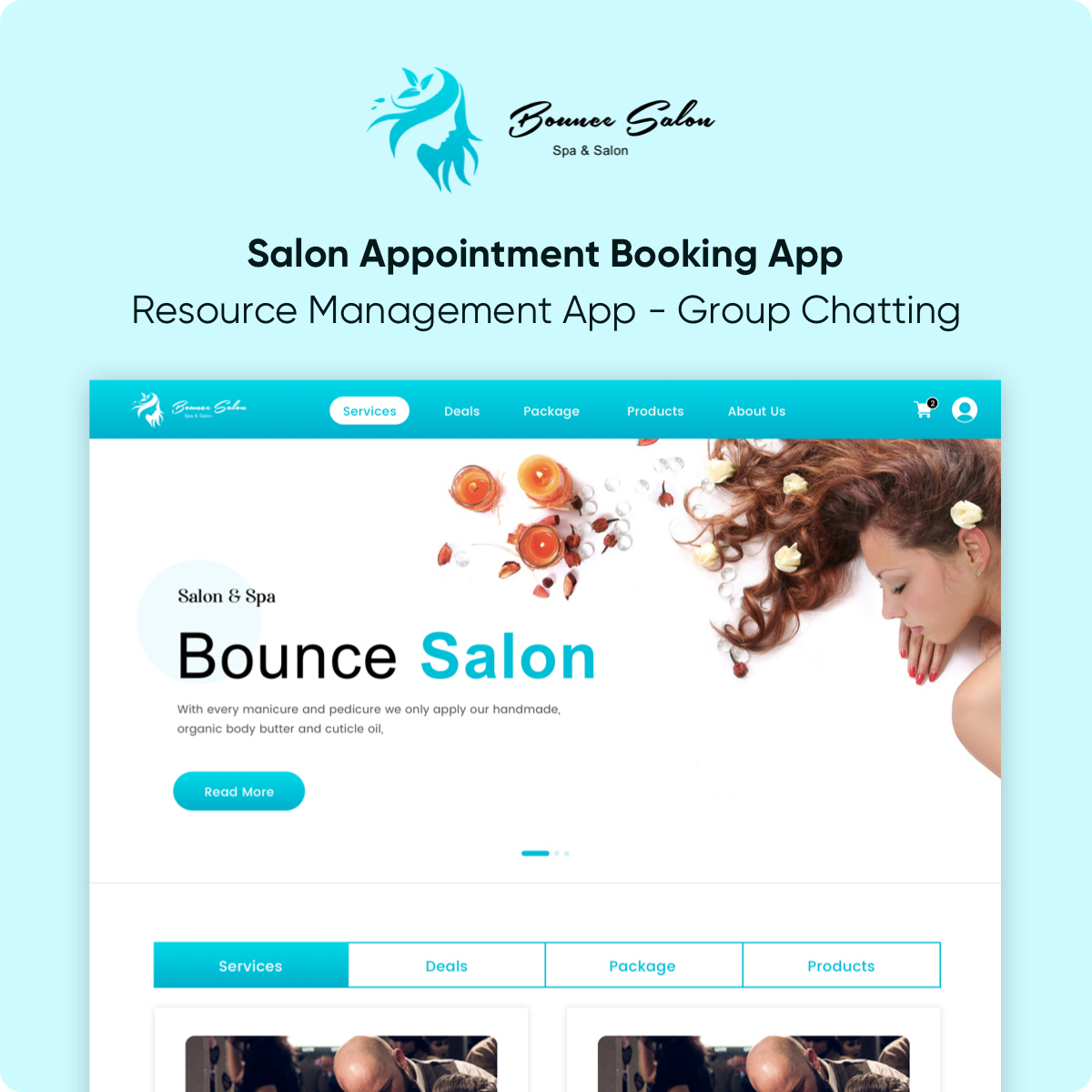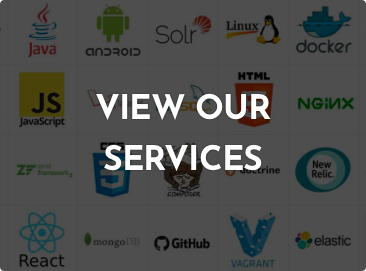Are you ready to level up your business endeavors with Intelligent Automation or IA? The future is automated and the integration of powerful AI and machine learning technologies is already upgrading how businesses operate. By streamlining processes, enriching decision-making, and driving efficiency, IA is indeed setting the stage for massive growth across industries.
Experience and explore the powerful impact and benefits of IA which ranges from boosting productivity and decreasing operational costs to enormously improving customer satisfaction. These advancements are not just about keeping up with trends in fact they are about staying ahead in this digital business landscape.
Don't miss out on this opportunity to use the full power and potential of Intelligent Automation. Read our blog to decode how IA can give your business a sharp edge in the present landscape and into the future. Welcome to the next level of strategic innovation and operational excellence.
Key Facts:67% of businesses employ automation solutions to enhance visibility across various systems from start to finish.
Automation ranks among the quickest-growing software industries, currently valued at $6.1 billion and anticipated to expand by 200%.
73% of executives have initiated intelligent automation projects that integrate AI and machine learning.
Intelligent automation (IA) refers to the strategic integration of artificial intelligence (AI), machine learning (ML) models , and robotic process automation (RPA). This powerful combination authorizes systems to not only perform tasks automatically but also adapt and improve over time. It helps them in learning from data and previous interactions to modify performance. The use of AI augments the capabilities of simple task automation to encompass decision-making processes that require understanding and reasoning. It further supports businesses in tackling complex operations that involve data analysis, natural language understanding, and predictive decision-making.
The boons of intelligent automation are significant and range from increased efficiency and reduced operational costs to enhanced customer and employee satisfaction. Intelligent Automation enwraps numerous applications in AI and Generative AI. By automating routine and repetitive tasks, companies can free up human workers to focus on more strategic and creative aspects of their jobs. It eventually aids in enhancing innovation and productivity. Plus, intelligent automation can lead to more accurate and timely decisions which reduce errors and improve outcomes in various sectors such as healthcare, manufacturing, and finance.
Intelligent Automation (IA) operates by integrating multiple advanced technologies. IA involves the combination of Robotic Process Automation (RPA) with Artificial Intelligence (AI). The other technologies supporting it are Machine Learning (ML), Natural Language Processing (NLP), and Computer Vision.
RPA deals with repetitive tasks such as data entry and invoice processing by employing software bots that replicate human actions on digital systems. AI and ML come into play by encouraging these systems to learn from data and past interactions. It further enhances their decision-making capabilities. For example, ML algorithms analyze historical data to boost processes and predict future outcomes. It continually helps in improving the system's efficiency and accuracy.
NLP allows IA systems to comprehend and generate human language which enables them to support complex customer service functions and interact seamlessly with users through chatbots or voice assistants. Computer vision technology facilitates the system to acknowledge and analyze images and videos. These can be used in various applications such as quality control in manufacturing or processing digital documents in offices.
The incorporation of these technologies not only speeds up operations but also reduces errors. They help adapt to new information and frees up human workers to focus on more strategic tasks.

IA smartly automates routine and repetitive tasks. It allows employees to focus on more complex and strategic activities. This shift not only speeds up processes but also cuts the likelihood of human error. It leads to more consistent, creative and high-quality outputs. Automation can deal with tasks faster than humans and can easily scale to meet fluctuating demands without any added human resource costs.
By automating processes, companies can enormously cut labor costs. They help minimize errors that lead to financial losses. Intelligent automation also allows organizations to streamline operations. It helps them decrease the need for manual interventions, which can be pretty expensive.
IA encourages organizations to respond more quickly to customer inquiries and requests. It provides a higher quality of service. Automated systems can provide 24/7 customer support and handle routine inquiries without fatigue which ensures customers receive timely and consistent responses.
With the ultimate power to analyze large volumes of data rapidly, IA supports better business decisions. It provides leaders with accurate and up-to-date information. This proficiency is important for maintaining competitive advantage in an evolving marketplace.
Intelligent automation systems are designed to scale and acclimate to transforming business needs. This flexibility helps companies to respond swiftly to new opportunities and operational demands without the necessity to expand resources or overheads.

IA significantly transforms customer interactions by using chatbots and virtual assistants. These AI-driven tools can provide 24/7 customer support and efficiently handle inquiries. They also help automate routine tasks and further augment the overall customer experience.
In human resources, IA streamlines processes such as employee onboarding and offboarding. It does this by automating tasks like document processing and data entry. This automation not only revs up the process but also guarantees accuracy and compliance with regulatory requirements.
IA is leveraged in marketing for predictive analytics. It also supports personalized advertising, and customer behavior forecasting. For example, AI can examine vast amounts of customer data to tailor marketing strategies. It also helps predict product demand and optimize inventory management. This leads to more effective marketing campaigns and operations.
In industries where compliance is crucial, IA automates and monitors compliance procedures. It assures that all operations adhere to regulations and standards which reduces the risk of compliance breaches and enhances the reliability of audits.
Within financial services, IA has a climacteric role in processes like invoice management and payments. It automates the extraction and processing of data from documents. It also speeds up transactions, reduces errors, and enriches financial reporting accuracy
Implementing Intelligent Automation (IA) in a business involves several mindful steps. It ensures its success and integration across various functions of the organization. Here’s a brief guide based on best practices from the industry:
Begin by identifying processes that are suitable for automation. Look for high-volume and repetitive tasks that consume substantial resources. Assess these processes to understand their complexity, data availability, plus the potential return on investment they offer.
After pinpointing the target processes, lay out a comprehensive automation plan. It should include mapping out each step of the process. It further involves defining the desired outcomes and then selecting the appropriate automation tools and technologies. These potent technologies help match the specific needs of each process.
Develop the automation solution by configuring robotic process automation (RPA) bots and incorporating artificial intelligence models. The solution must be scalable, flexible, and competent to adapt to changing business needs.
Execute rigorous testing in a controlled environment to guarantee the automation operates reliably and accurately. Adjustments should be made based on the outcomes to sync with the initial goals.
Once validated, deploy the automation into the live environment. It is important to continuously monitor its performance to guarantee it meets efficiency gains, cost savings, and other key metrics. This data will help in recognizing further optimization opportunities.
You must view Intelligent Automation as an ongoing journey and not just a one-time project. Regularly update and scale up the automation processes based on new data and feedback from users plus the evolving business requirements.
Implementing intelligent automation (IA) is fundamentally a change management initiative. It necessitates preparing the workforce by clearly communicating the advantages and providing training on how to effectively use the new tools. This preparation helps smooth the transition and nurtures adoption.
When going with an intelligent automation (IA) solution, businesses should note several crucial factors. These parameters help make sure they select a system that is robust, scalable, and suitable for their specific needs:
Advanced AI Capabilities: The solution should use powerful AI technologies like machine learning and natural language processing to effectively administer complex tasks.
Scalability and Flexibility: It is important that the IA solution can scale according to business growth and merge smoothly with existing systems and processes.
User-Friendly Interface: Go with a solution that offers an intuitive interface that makes it easier for users to deploy, configure, and manage automation workflows.
Comprehensive Support and Training: Make sure that the vendor provides extensive support and training to assist your team maximize the value of the IA solution.
Security and Compliance: The solution should have strong security features and compliance certifications to safeguard sensitive data and adhere to regulatory standards.
Proven Track Record: Go with a vendor with a solid history of successful implementations and high customer satisfaction across various industries.
We are living in a world where efficiency is of immense importance. The demand for rapid, accurate, and decision-making is also increasing and here intelligent automation (IA) stands as a leading force for businesses. By incorporating artificial intelligence with machine learning and robotic process automation, IA helps companies not only automate routine tasks but also enrich their operational capabilities and strategic insights. The result? A significant uptick in productivity, cost savings, and an agile and robust competitive edge in the market.
If you are looking to reap the power of intelligent automation to refine your business processes, revamp customer satisfaction, and push innovation then it's time to explore further. Discover the full spectrum of opportunities IA offers and learn how to effortlessly implement these solutions effectively within your organization.
So, are you all set to take your business to the next level with intelligent automation? Explore our comprehensive generative AI app development services to seamlessly integrate these technologies to maximize efficiency and development. Join the future of business transformation with Wegile, where we bring terrific solutions directly to your operational strategy.


 Browse Our Services
Browse Our Services
